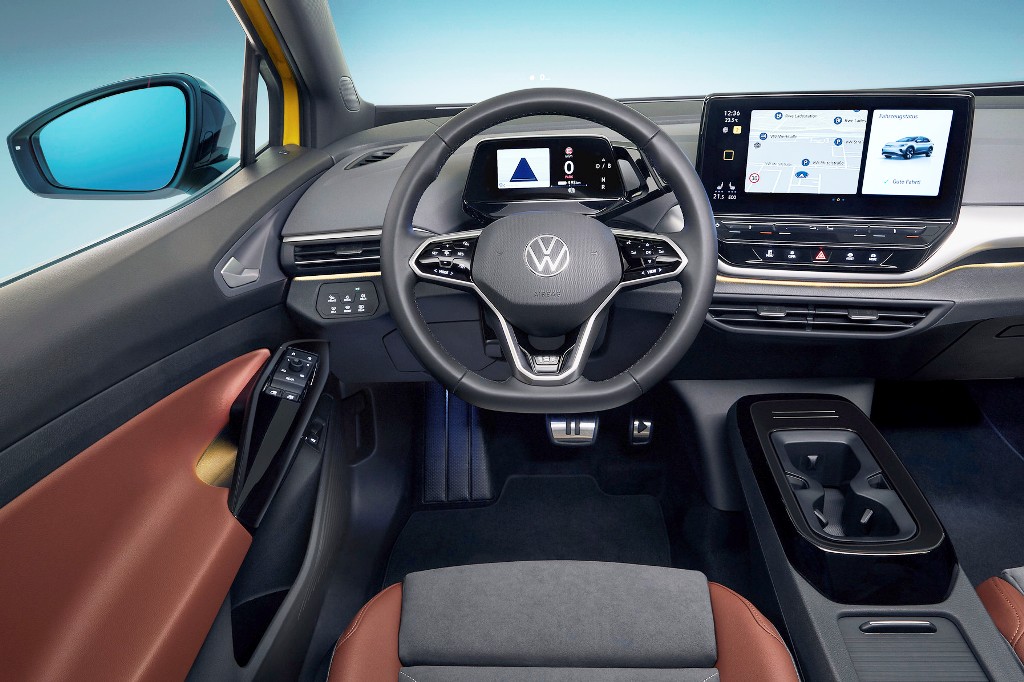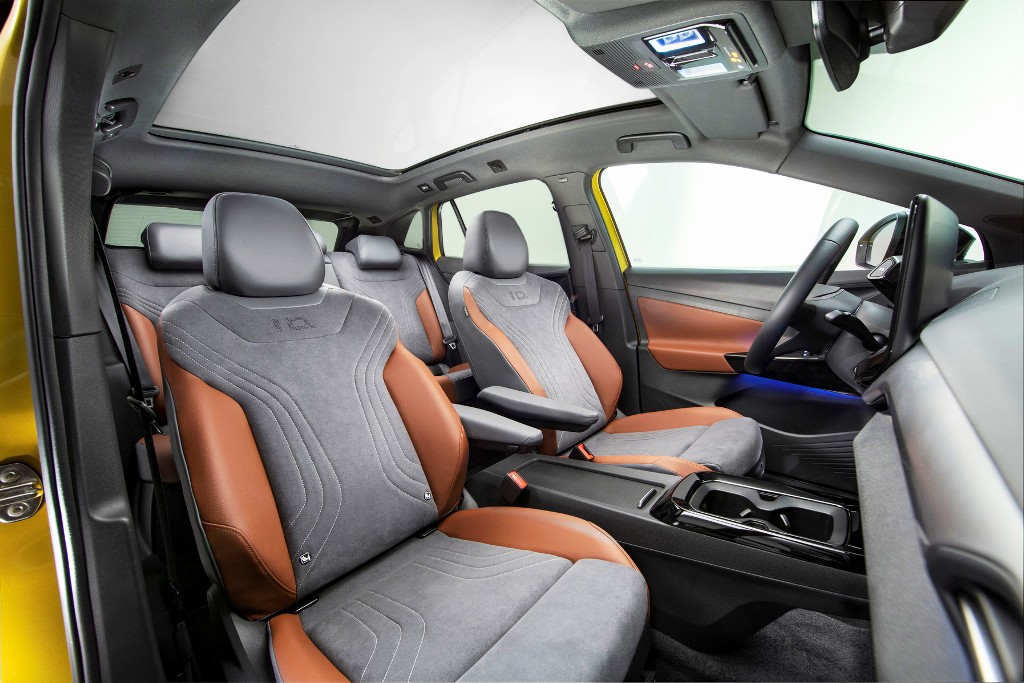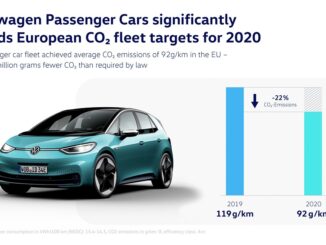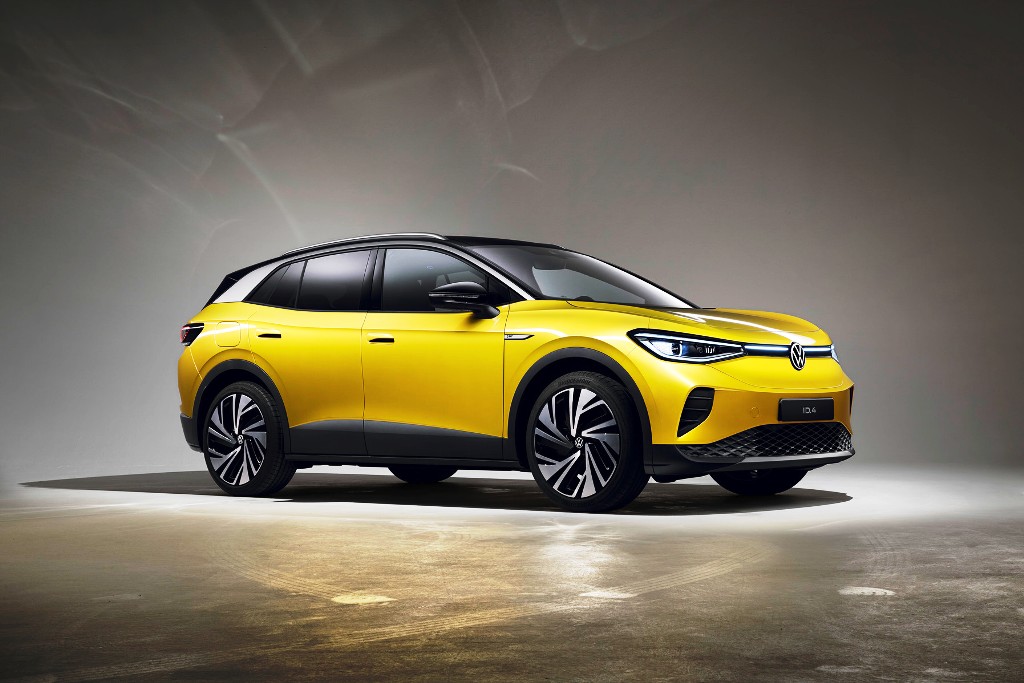
- ID.4 launches into the world’s largest market segment, the compact SUV class
- Powerful design, large vehicle interior, pioneering operating concept
- Electric motor with 150 kW (204 PS), achieving a range of up to 520 km
- View the video clip of the ID.4’s world premiere here
Presenting the ID.4, which is celebrating its digital world premiere. This is Volkswagen’s first fully electrically driven SUV generating zero local emissions and is produced with a carbon-neutral balance. It will be launching into the world’s largest market segment, the compact SUV class.
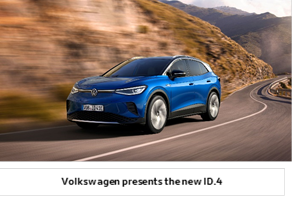 “The ID.4 is an emotional all-rounder which will impress many customers with its efficient electric drive, generous amount of space, modern assist systems and powerful design,” says Ralf Brandstätter, Chief Executive Officer of Volkswagen brand. “As the first global electric car, this model will roll out our modular electric drive matrix platform that has been developed specifically for electric mobility the world over. Volkswagen is thus once again demonstrating its leading role in innovation, technology and quality on the high-volume market.”
“The ID.4 is an emotional all-rounder which will impress many customers with its efficient electric drive, generous amount of space, modern assist systems and powerful design,” says Ralf Brandstätter, Chief Executive Officer of Volkswagen brand. “As the first global electric car, this model will roll out our modular electric drive matrix platform that has been developed specifically for electric mobility the world over. Volkswagen is thus once again demonstrating its leading role in innovation, technology and quality on the high-volume market.”
SUVs are very popular with an increasing number of customers. They are the most popular vehicle segment in the USA and China as they offer good levels of visibility, safety and comfort. In Europe and Germany market shares are also continuously on the up and especially compact models are booming. With the ID.4, Volkswagen is offering a fully electrically driven SUV for the very first time. It offers the space, flexibility and all benefits customers appreciate about SUVs.
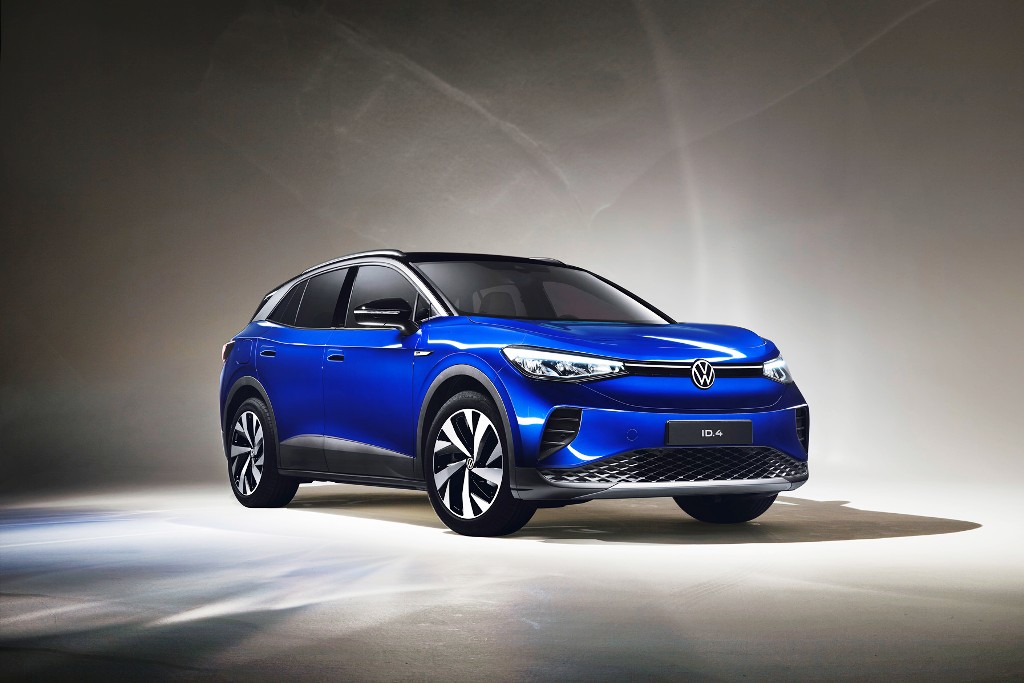
The ID.4 is an all-round talent that can be driven in a sporty, yet also easy and comfortable way. The battery stores up to 77 kWh of energy (net) and enables ranges of up to 520 km (WLTP). It is installed below the passenger compartment which guarantees a low centre of gravity. The electric drive motor, positioned at the rear axle, generates 150 kW (204 PS) – enough to accelerate from 0 to 100 km/h in 8.5 seconds and deliver a top speed of 160 km/h. Thanks to the rear-wheel drive’s strong grip and its 21 centimetres of ground clearance, the E-SUV also performs well in gentle off-road terrain.
Dynamic appearance. The ID.4’s exterior has athletic proportions for an ultra-modern appearance. Its clear, flowing design is inspired by nature and guarantees very good aerodynamics with a drag coefficient of 0.28.Its basic version already features headlights that are almost completely equipped with light-emitting diodes while its tail light clusters have been fully equipped with this technology. As the top-of-the-range version, interactive IQ.Light LED matrix headlights are even more progressive: they welcome drivers with swivelling lens modules and generate an intelligently controlled main beam. These headlights have been paired with the new 3D LED tail light clusters. Their tail light is particularly homogeneous and lights up in an intensive red. The large wheels with a diameter of up to 21 inches underline the vehicle’s character.
Spacious concept: long wheelbase, plenty of room for passengers and luggage
The ID.4 with a length of 4.58 metres uses Volkswagen’s modular electric drive matrix (MEB) architecture. It divides the space for occupants and technology in a completely new way in favour of passengers. The room available in the vehicle interior is at the level of conventional SUVs in the next category up. Colours and materials are contemporary while also being homely. Depending on the rear seat backrest’s position, the luggage compartment boasts a capacity from 543 to 1,575 litres. The equipment range of the ID.4 includes an electrically driven boot lid, roof railing and a towing bracket.
The E-SUV’s operating concept does not depend on physical buttons and switches. It is based on two displays – one of which diagonally measures up to 12 inches and features touch functionality – as well as “Hello ID.” natural voice control. The new ID.Light – a narrow light strip under the windscreen – intuitively supports drivers. An augmented reality head-up display is optionally available to blend a host of displays with reality – for instance, navigation arrows telling drivers to turn off are projected onto the road surface in exactly the right lane. The Discover Pro navigation system brings We Connect Start online services on board. IQ.Drive assist systems make driving an even more relaxed experience and this particularly applies to Travel Assist. Software and hardware in the ID.4 have been designed as part of a completely new architecture, making it possible for customers to download updates to the car after the purchase.
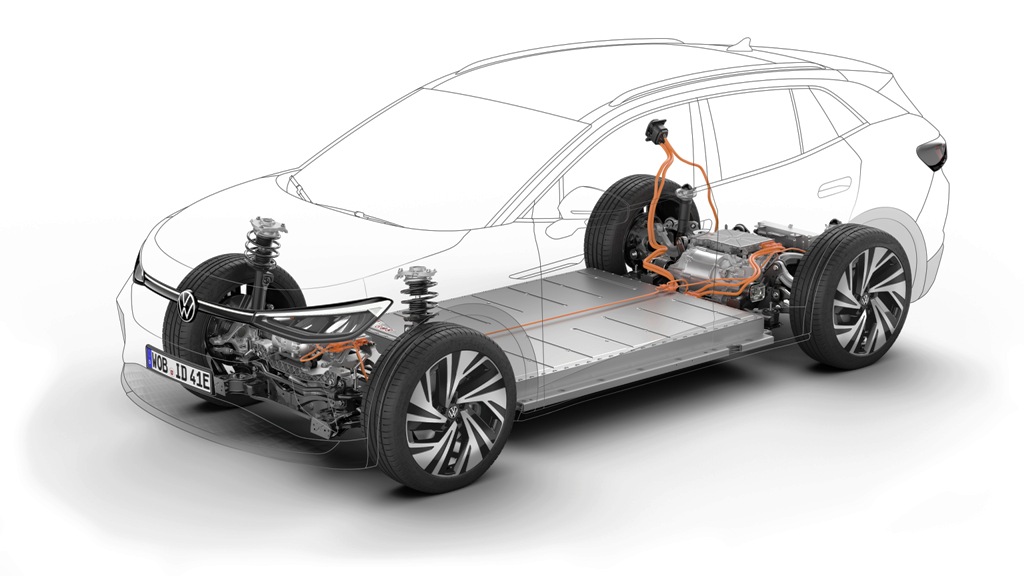
We Charge: charge at home, when out and about and on long journeys
Together with the ID. models, Volkswagen is launching on the market a complete package for convenient, connected and sustainable charging of electric cars under the name We Charge. This offers the ideal solution for any situation – whether you are at home, out and about or on a long journey. The ID.4 can be recharged with direct current to cover the next 320 km (as per WLTP, at 125 kW) at a DC quick-charging station in around 30 minutes.
In parallel, Volkswagen is establishing an ecosystem of sustainable electric mobility surrounding ID. models. ID.4 customers will receive a vehicle that has been produced with a carbon-neutral balance. And if it is charged using sustainably produced electricity – like Volkswagen Naturstrom – it will remain carbon-neutral on the road too.
Volkswagen’s strategy: the future of mobility is electric
As of late, Volkswagen has been supplementing the brand’s traditional product portfolio with the ID. family: a new, independent product range. Following the compact ID.302 , the ID.4 SUV is the second fully electric model. In the future, Volkswagen will be competing in the globally booming compact SUV segment with the ID.4. The ID.4 will be gradually turned into an electrically driven, global car with plans to produce and sell the E-SUV not only in Europe, but also in China and later in the USA. On a whole, Volkswagen brand will be investing eleven billion euros in electric mobility by 2024 as part of the Transform 2025+ strategy.
1ID.4 – power consumption (NEDC) in kWh/100 km: 16.9–16.2; CO₂ emission in g/km: 0; efficiency class: A+
2ID.3 – power consumption (NEDC) in kWh/100 km: 15.4–14.5 (combined); CO2 emissions in g/km: 0; efficiency class: A+
